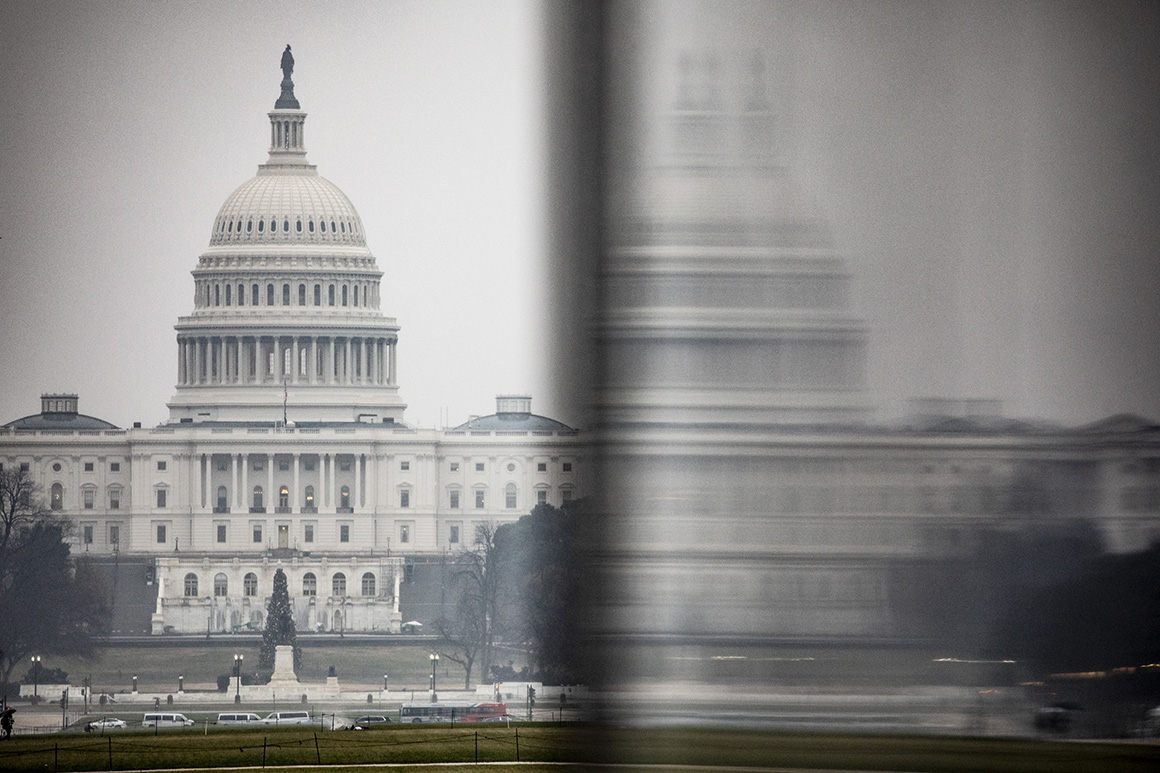
“Why should mask makers have special immunity?” said one Pelosi aide, explaining her thinking.
In mid-March, as the U.S. economy began to blink red and concerns mounted about a widespread shortage of masks, Congress scrambled to pass a second wave of emergency legislation, and then a third.
A temporary waiver on liability on mask makers that included some, but not all, N95-grade masks was included in the Phase 2 bill negotiated by Pelosi and Treasury Secretary Steve Mnuchin, and the Trump administration announced that companies would begin producing “tens of millions” more masks a month. Senate Majority Leader Mitch McConnell—who canceled the Senate’s planned recess for the week of March 16—made the waiver permanent in Phase 3, which will also allow for more types of masks to be used.
“I didn’t see early on that it would be this challenging. I just thought it was a logical way to go forward,” said Rep. Don Bacon (R-Neb.), who sponsored a version of Fisher’s bill in the House in 2019, before coronavirus came on the scene. “Now, companies are working around the clock to supply a need.”
Nearly a month after the original debate over the provision of masks, Congress is now poised to further free up mask production. But in between the start of the debate and its resolution, a critical shortage has surfaced. Doctors and nurses in the most in-demand areas are being forced to reuse masks, which they have described as a serious health risk, wear bandanas, or even make their own.
“Whatever needs to happen to increase the ability of manufacturers in this space to ramp up production has to happen,” said Mark Howell, senior associate director of policy at the American Hospital Association. “And it has to happen now so that we can get things off the conveyor belt and into providers’ hands.”
Lawmakers’ limited tools
Democrats reject the notion that they missed the ball on coronavirus, noting that several were speaking out about it during the impeachment process.
“To effectively beat infectious diseases like coronavirus, we need all hands on deck,” Sen. Elizabeth Warren (D-Mass.) tweeted on Jan. 28. “But like so much else, Trump’s approach to keeping us safe from disease outbreaks is a mess.”
The administration’s briefings were generally unhelpful, said Senator Murphy, and raised red flags among some lawmakers that Trump wasn’t taking the growing threat seriously. He pointed to a Feb. 5 briefing in which, he said, officials claimed they could handle the outbreak response under existing appropriations.
In mid-February, Democratic lawmakers even considered going alone on a supplemental spending bill, according to one Democratic congressional source, because they doubted the administration’s reassurances. But without a specific request from the administration for emergency supplemental funds, their options were limited.
“I’ve never heard of an emergency supplemental without the cooperation of the administration,” said Murphy.
Rep. Tom Malinowski (D-N.J.) agreed. “I can’t think of another time when Congress would have been that far ahead of a president in time of crisis,” he said.
Democrats also pointed to the yawning gap between the dire warnings being issued by infectious disease specialists, like the CDC’s Dr. Nancy Messonier – who told Congress in late February that “it’s not so much of a question of if this will happen anymore, but rather more of a question of exactly when” the virus would disrupt Americans’ lives – and top Trump officials, who consistently asserted the opposite.
“It was so stark to me that there was a disconnect between what we were being told by experts – the warnings they were issuing – and response from White House,” said Katherine Clark (D-Mass.), a Democrat on the House Appropriations Committee.
Some who have criticized Congress’s response are willing to absolve lawmakers of primary responsibility for the botched response to the coronavirus – arguing that they used what few tools they had once the emergency struck.
“From my perspective, Congress has been engaged from very early on,” said Jennifer Nuzzo, a senior scholar at the Johns Hopkins Center for Health Security who testified before the House Committee on Foreign Affairs on Feb 5.
Congressional leaders were not oblivious to the wide-ranging economic and security risks posed by emerging infectious diseases, either. The House Intelligence Committee, for instance, included a specific provision on pandemics in the Intelligence Authorization Act encompassing 2018, 2019 and 2020 that required the director of national intelligence to submit a report “on the anticipated geopolitical effects of emerging infectious disease … and pandemics, and their implications on the national security of the United States.”
Source: politico.com
See more here: news365.stream






